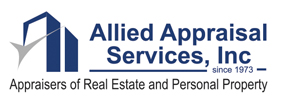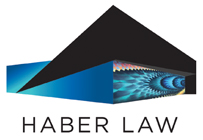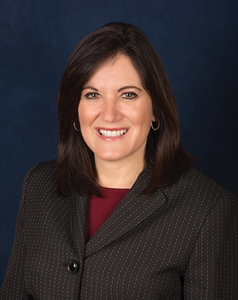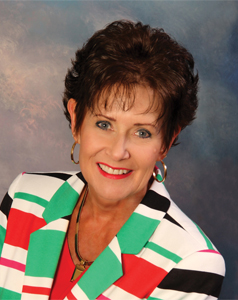
FCAP Community
Published April 2019
Florida Community Association Professionals’ (FCAP) training is offered on two levels. Level one consists of courses meeting Florida’s continuing education requirements for CAMs, and level two is the Florida Advanced CAM Studies (FACS) course. For further information about the more than 50 online continuing education classes available or to pursue the Certified Florida Community Association Manager (CFCAM) designation, please visit www.fcapgroup.com/membership/education-training/.
CAM to CAM
Marcy L. Kravit, CMCA, AMS, PCAM, CFCAM
AKAM ON-SITE Managing Director
FCAP Education and Training Coordinator
Editor’s Note: In the March 2019 issue on page 95, Marcy Kravit provided readers with several guidelines for condominium residents to take when they vacate their seasonal home. It can also be accessed online at www.fcapgroup.com. This month highlights items/projects management can undertake while the seasonal residents are away.
Suggestions for management when Seasonal residents vacate the property
Question: What items/projects should I focus on when the seasonal residents/snowbirds/winter visitors vacate the property?
Answer: When the season is over, it is a time to prepare to facilitate projects and draft your action item list to address those heavy traffic common areas that require attention. The spring and summer months are the perfect time to perform thorough inspections and work on preventative maintenance on all building equipment, cooling towers, chillers, boilers, motors, pumps, fans, wiring, coils, gauges, and pipes from the rooftop down. High-rise condominium lobbies, hallways, social rooms, fitness centers, and pool areas experience a lot of traffic during the season, and it is critical that these areas give a dynamic first impression for guests, realtors, potential buyers, and business associates. It is imperative that from the moment a guest steps out of her vehicle to the entrance of the lobby, steps on the mats, visits the front desk/reception areas, and sits on the furniture, all must be presentable, fresh, and clean.
In order to accomplish this, it is recommended that managers provide housekeeping and maintenance staff specific job-related tasks, products, and checklists for each designated area. Light fixtures need to sparkle, windows need to be free of fingerprints, and elevators need to be spotless.
Managers consistently work to maintain the property regardless of the season; however, when the building is less occupied, there is minimal impact on the residents. For instance, it is easier to shut down the elevators for maintenance, inspect and clean trash chutes, and access units for inspections.
Here are some recommended items you can address during the off season:
- Prior to leaving, obtain updated and accurate unit owner contact information for unit owner correspondence, proxies, and voting. Update records and unit owner roster.
- Review rules and regulations for amendments.
- Inspect security camera equipment.
- Pressure wash all entry areas and ramps
- Perform a roof inspection and maintenance
- Perform parking garage cleaning, wheel stops replacements, striping, painting
- Clean the trash chute
- Inspect the fire sprinkler pump
- Carry out the back-flow inspection
- Schedule the fire systems inspection
- Make sure the fire extinguishers work
- Pressure wash and seal pavers
- Review asphalt paving for repairs
- Clean the dryer vent
- Clean the drain
- Jet the drain lines
- Inspect and perform maintenance on the gate sensors, loops, tracks, and systems
- Perform domestic water pump maintenance and inspection
- Schedule tree trimming and remove coconuts from palms prior to hurricane season
- Fertilize all landscaping, including all trees, and change out annuals
- Review summary of the insurance renewal
- Perform employee evaluations and reviews
- File the uniform business report
- Inspect the elevator(s) and clean the tracks
- Clean and paint hallways
- Prepare for Health Department/pool inspection
- Close out outstanding permits
- Review contracts
- Review certificates of insurance and obtain renewals for all vendors
- Label all main breakers and main water valves throughout the building
- Review and update hurricane procedures
- Review association documents in detail and make recommendations for changes to the board
- Update the insurance appraisal
- Maintain floor care, clean carpets, and buff and polish marble floors
- Schedule exterior pressure cleaning/window cleaning
- Perform landscape irrigation repair
- Make time for plumbing inspections
- Change out/replace bulbs and fixtures
- Review housekeeping duties
- Upgrade the landscaping
Because You Asked
By Betsy Barbieux, CAM, CFCAM
Betsy,
This is Steve, one of your former students. I will see you soon because I need my 20 hours this year.
I have a question I hoped you could help with. I called the DBPR, and I’m awaiting a call back but not expecting much help. We have a CAM License and Firm and have been displaced by Hurricane Michael. Can we maintain our Florida CAM License if we live just inside of Alabama but have all our work in Florida? I saw that there was no residency requirement to take the test. My business is still in Florida, but we may need to move to Alabama. Can you help me? -Steve
Steve,
You can have a Florida license and live out of state. Residency is not a requirement. I’m sorry to hear that you’re displaced; I know it’s been difficult for everyone in the Panhandle area.
I will be having the annual YES/Yearly Educational Summit at the end of September and first of October. Continue to look for those announcements in the monthly newsletter. I am still planning the details, and registration should be open soon. You will need 20 hours by September 30, 2020, so those who receive their credits this year will receive them a whole year early. Your group will be known as the early birds!
-Betsy
Betsy,
I have an election question. One of our directors was appointed to fill a vacancy seven years ago. Our terms are for two years, so how do the new term limit laws affect his eligibility to serve for another two-year term? Since he has already served seven consecutive years, another two-year term would mean he will actually serve for nine consecutive years. The election was today, and he was elected to another two-year term but did not win by a super majority. Please advise.
-Kathy
Kathy,
The new term limit laws apply to condominiums only. The law fails to include a start date, so most attorneys say that the eight years starts when the law goes into effect, which was July 1, 2018.
Board members can serve more than eight consecutive years if there’s no one else running for that seat or if they receive at least 2/3 of the votes cast. So, the way most attorneys describe it is that from last year forward, board members have eight more years to serve before the limits are imposed.
In my opinion, it’s a totally unnecessary law and needs to be repealed.
-Betsy
Betsy,
I’m getting conflicting information. In a closed meeting with the attorney for an HOA, does a notice need to be posted? Also, doesn’t an agenda need to be posted at all Chapter 718 and Chapter 720 board meetings?
-Brinda
Brinda,
The condominium and HOA statutes do not specifically say whether to post a notice of a closed meeting or not. In a workshop I attended, Mary Frances Katona from the Division of Condominiums Bureau of Compliance prefers that you do post a notice and say that it is closed, but they have no ability to enforce that preference.
In a condominium, it is very clear that you must post an agenda with clearly designated agenda items along with your meeting notice.
It is not as clear in the homeowners association statute, but because owners may speak to designated agenda items, it only makes sense that the agenda have clearly identified agenda items.
In either situation, that means there is no item on your agenda called “Other.” Only identified agenda items may be discussed. There is no open forum and no open Q&A contemplated by the statute.
-Betsy
Betsy,
I understand that Florida has adopted a new policy regarding term limits for board members. The big question is, when do the eight years start? Is it retroactive, or do the eight years begin now? I haven’t seen any opinions that look trustworthy; can you help?
-David
David,
I have listened to three attorneys give answers to this question, and the general thought is the eight years period starts running with the implementation of the law on July 1, 2018.
-Betsy
 Is Access to Your Gated Community or Parking Garage Really Secure?
Is Access to Your Gated Community or Parking Garage Really Secure?
By Michael Hough, GNM Hough Inc.
www.gnmhough.com
Many older communities and condominiums are still using portable transmitters, or “clickers,” as they are known, to gain access to their residences. When residents move out or sell their home or condominium, they often take the clicker with them when they move. This allows them, or their friends and family, to maintain access to the property. The problem with this application is that the clickers are independent of the access control system, and they typically communicate with a receiver that is connected directly to the gate itself. This poses a problem because the clickers all operate using the same code or frequency. Unless the association manager re-programs all of the existing residents’ clickers each time someone moves out, the community has left itself open to unauthorized guests. It is unrealistic to expect an entire community to bring their clickers in to management for re-programming every time someone moves out. In some communities this could be hundreds, if not thousands, of clickers. With today’s booming real estate market, association managers would be in a never-ending state of re-programming clickers, not to mention the inconvenience that this would pose for the residents.
FCAP Member’s Spotlight
 Allied Appraisal Services
Allied Appraisal Services
Allied Appraisal Services located in Pompano Beach are appraisers of real estate and personal property since 1973. With a staff of appraisers who are all highly trained and experienced in their own specialty field, the company is able to offer their “One Call Does It All” service to their clients. They offer full replacement cost, insurance value, or actual cash value of buildings, structures, and other improvement for placement of proof of loss purposes for condominiums and HOAs.
For more information on Allied Appraisal Services, visit www.alliedappraisals.com or call (800) 273-4623.
 GNM Hough Inc.
GNM Hough Inc.
“Securing Your Assets and Protecting Your People”
GNM Hough is a security system integrator that specializes in the installation and service of electronic access control, video surveillance, and intrusion detection systems for commercial customers. With our office conveniently located in Davie, our experienced and professional team of experts effectively service Dade, Broward, and Palm Beach counties. We offer only the highest-quality security products and service at competitive prices. Our personnel are factory trained and certified on the latest cutting-edge equipment in the industry while providing seamless product integration. Some of the services we offer are test/inspections, operator coaching, emergency on-site response, repair and replacement, software/firmware support, remote access management, and additional access cards.
For a complete list of services, please call our office at (954) 797-6886 or visit www.gnmhough.com.
 Haber Law
Haber Law
Haber Law is an 11-attorney boutique law firm based in Miami, Florida, that focuses on construction law, including design and construction defects litigation, complex business litigation, condominium and homeowners association law, and all aspects of real estate law. Additional practice areas include aviation law, bankruptcy and creditors’ rights, and family law. The firm is committed to its core values of integrity, service, dedication, innovation, diversity, and success.
For more information, Haber Law is located on the internet at www.haber.lawand can be reached at (305) 379-2400.





